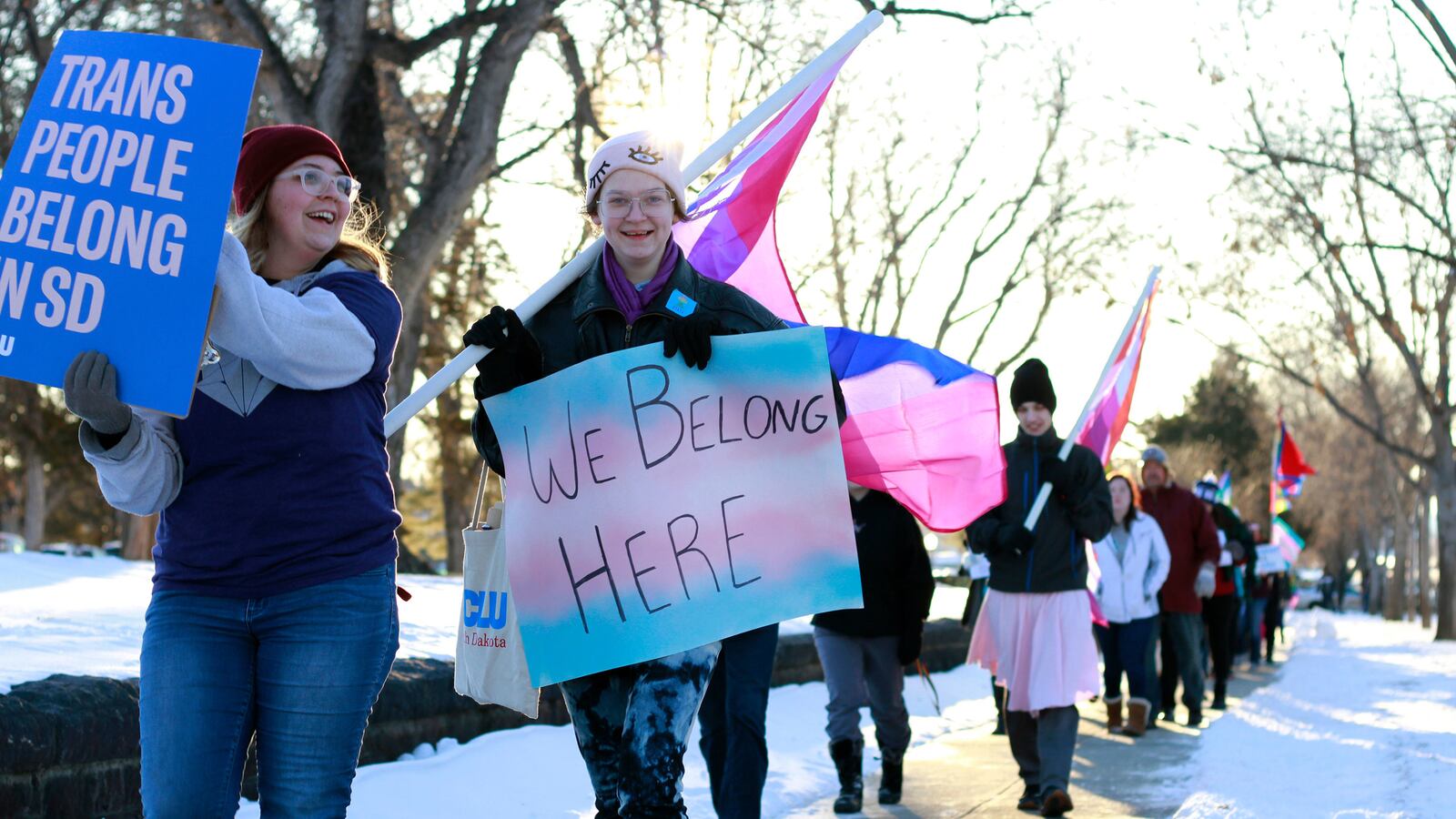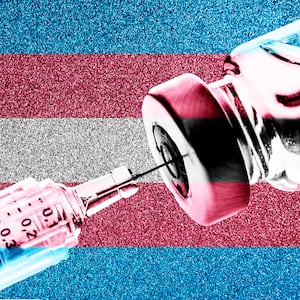The controversial South Dakota HB 1057 appears to be all but dead, nearly one month after its introduction.
The bill drew the ire of civil rights and medical groups for proposing criminal punishments for doctors who prescribe puberty blockers and hormone treatments for transgender youth in the state under the age of 16. HB 1057 was the first bill of its kind proposing such criminal penalties for doctors following standards of care proposed by international medical bodies.
Representative Fred Deutsch authored the bill with the help of many conservative groups such as the Minnesota Family Council, the Kelsey Coalition, and the Family Policy Alliance. Similar bills appeared in several other states as part of a broader wave of anti-transgender legislature during the 2020 session.
After passing the South Dakota House of Representatives by a 46-23 vote, the bill was defeated on Monday in a South Dakota Health and Human Services Committee hearing by a 5-2 vote.
“It was really fantastic to see the way the community responding to this bill, and the broad coalition of folks who opposed the hearing today and the hearing back in the House,” Libby Skarin, ACLU South Dakota Policy Director, told the Daily Beast.
“It is the result we wanted for a long, long time so it feels really nice.”
Over the last month opposition to the bill has tried to focus on the adverse effects denying care to transgender youth would have on their mental and physical health.
Statistics from the Trevor Project show that in 2019 54% of transgender youth surveyed by the organization reported “seriously considering suicide” in the last year. Meanwhile, according to the Trevor Project, “pubertal suppression has also been shown to significantly improve overall psychological functioning after only six months of care” and significantly lower suicidal ideation compared to those who did not receive such treatment.
In the last year alone the Trevor Project says it has fielded 150 crisis calls from South Dakota youth, which is only a small percentage of what the group estimates are LGBT youth in the state in crisis.
Sam Brinton, Head of Advocacy and Government Affairs for The Trevor Project, said after the bill was voted down in committee that the vote was a “resounding victory for trans youth in South Dakota” and more importantly will be a lifesaver to kids in the state.
“We are hopeful that any state considering similar bills will join South Dakota in setting aside these attacks on trans youth to focus on real priorities to advance the health and wellbeing of all,” Brinton said. “Thank you to the ACLU of South Dakota and to all of the local advocates and members of the SD Senate Health and Human Services Committee who held the line and stopped this misguided legislation in its tracks.”
South Dakota has a few legislative mechanisms that could revive the bill, including a legislative “smokeout” that allows the Senate to revive a bill on the floor within three legislative days of a committee vote if one-third of Senators vote to do so. Skarin said that the resounding victory in the Republican-controlled HHS Committee should be enough to kill the bill, but she will feel “more confident” if the bill is not revived by Friday.
The delay between the House of Representatives vote and the Senate hearing ultimately led to the committee voting to defeat the legislation, Skarin said. One Senator on the Committee, Senator TK Rush, said during the hearing that his office had fielded more calls on HB 1057 than any other piece of legislature during his six-year tenure as an elected official.
LGBT rights groups now say they hope the defeat of HB 1057 is a beacon to the other states considering similar legislation.
“It’s heartening to see how strongly South Dakotans stood against HB 1057 and that elected officials in the state are standing up against the misinformation and anti-transgender attacks that came from the bill’s proponents,” Alphonso David, President of the Human Rights Campaign said after the bill’s defeat. “Now, as similar bills pop up in other states across the country, we’re hopeful that other states’ lawmakers will follow South Dakota’s lead in recognizing that these bills are unnecessary, harmful and have no place in our state legislatures.”
Should HB 1057 not be revived it will be another legislative session without an anti-transgender piece of legislation being enshrined in state law, and the fourth in a row since past-Governor Dennis Daugaard vetoed an anti-transgender bathroom bill in 2016.
“I hope that is a trend that continues,” Skarin said. “I hope that it [also] means in future legislative sessions legislators will think twice, and then think twice again, about introducing bills like this. So for today we’ll celebrate.”






